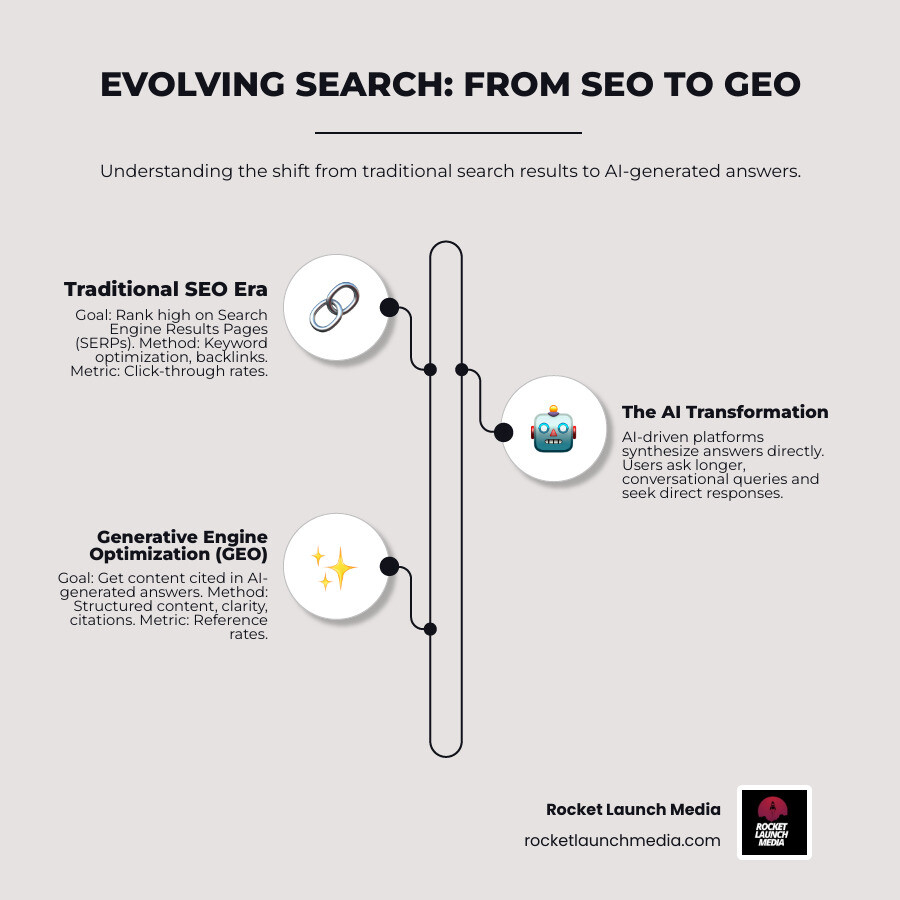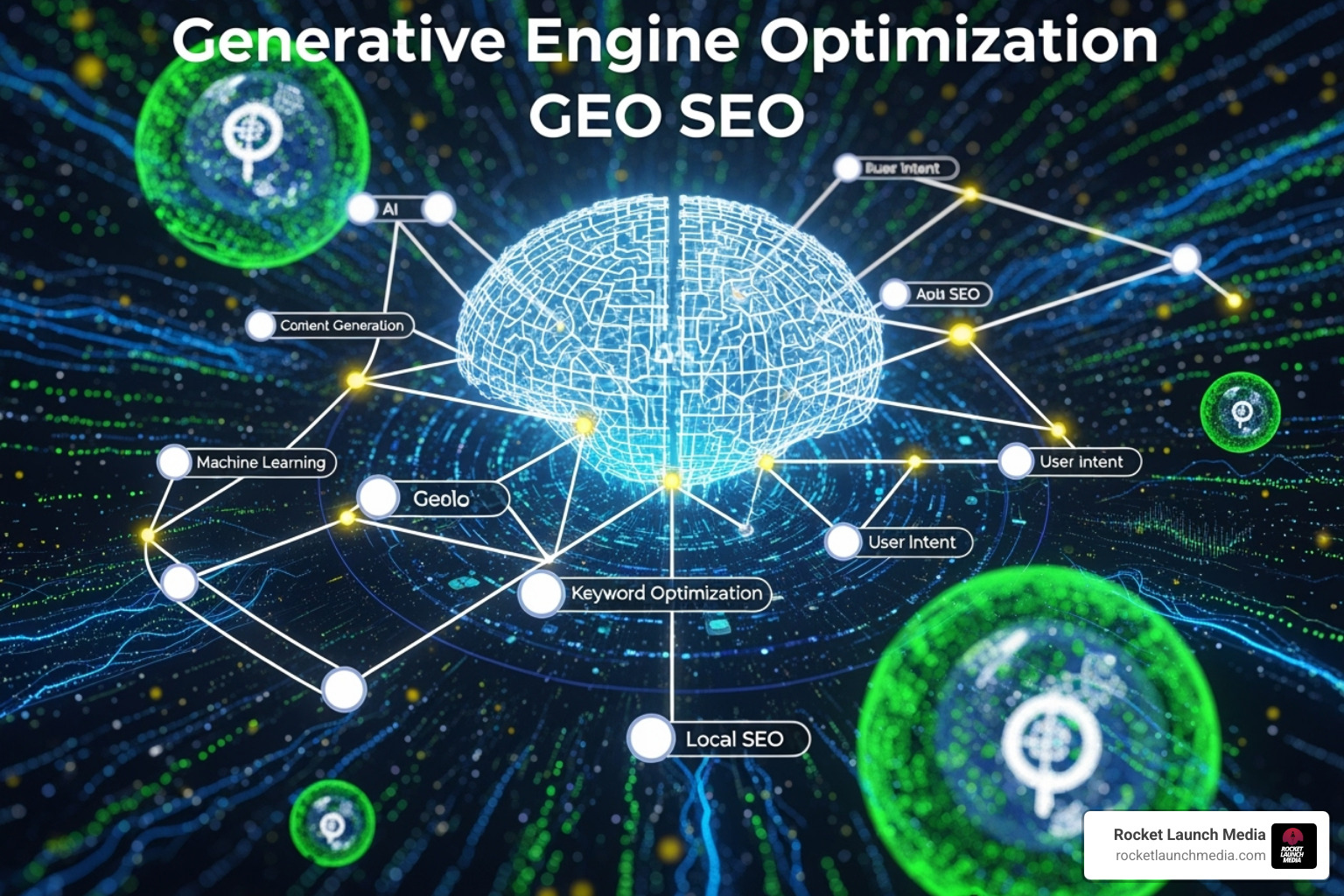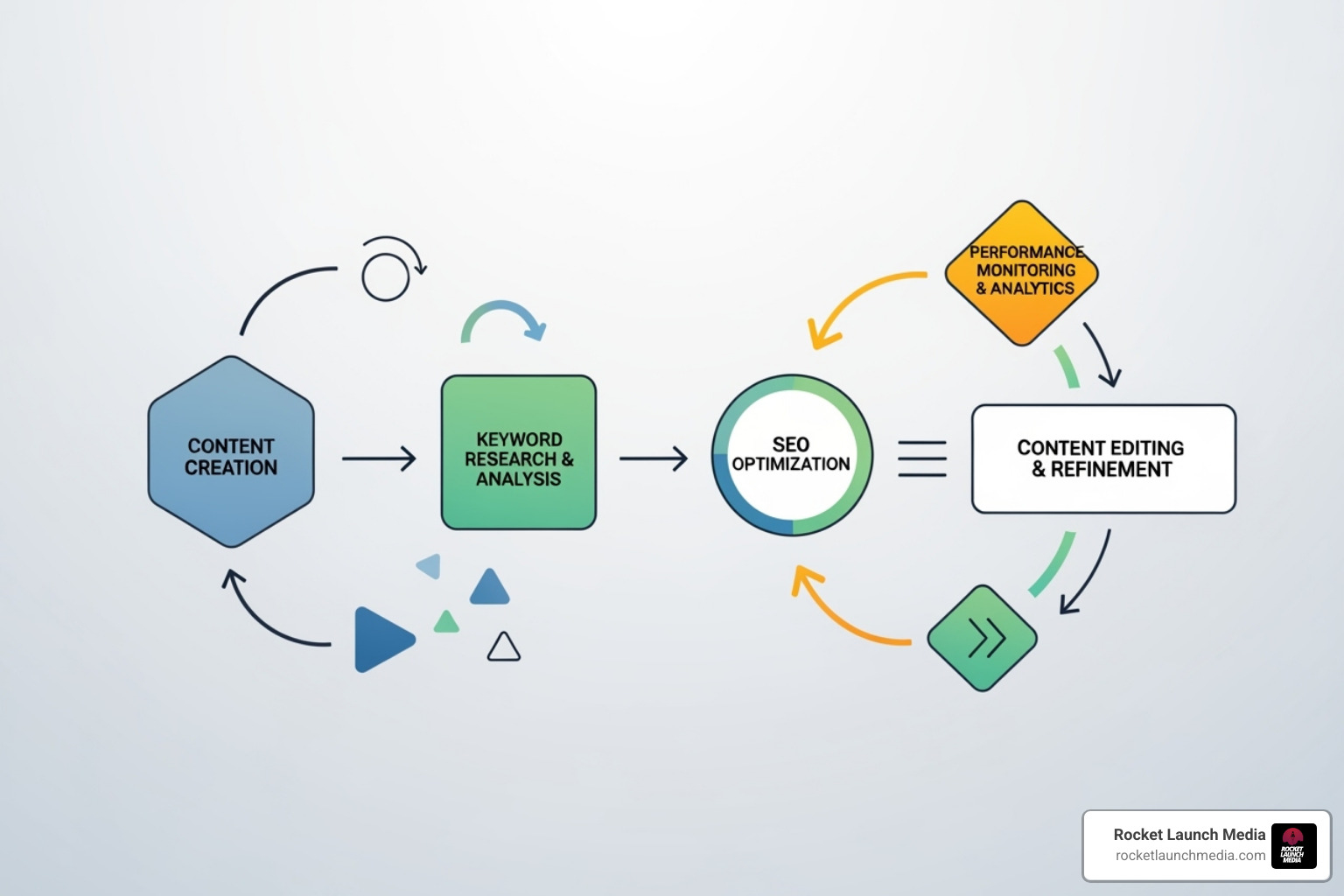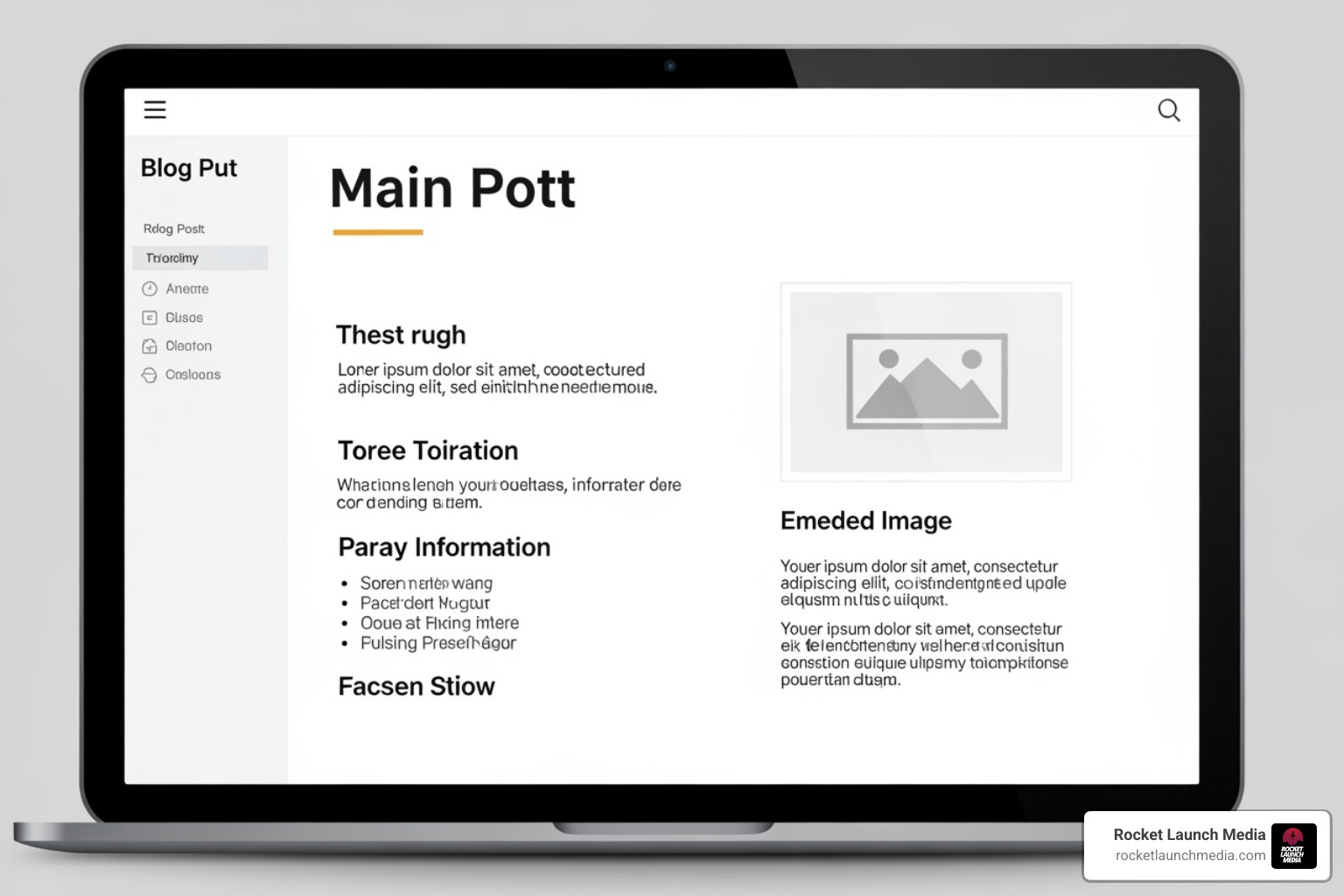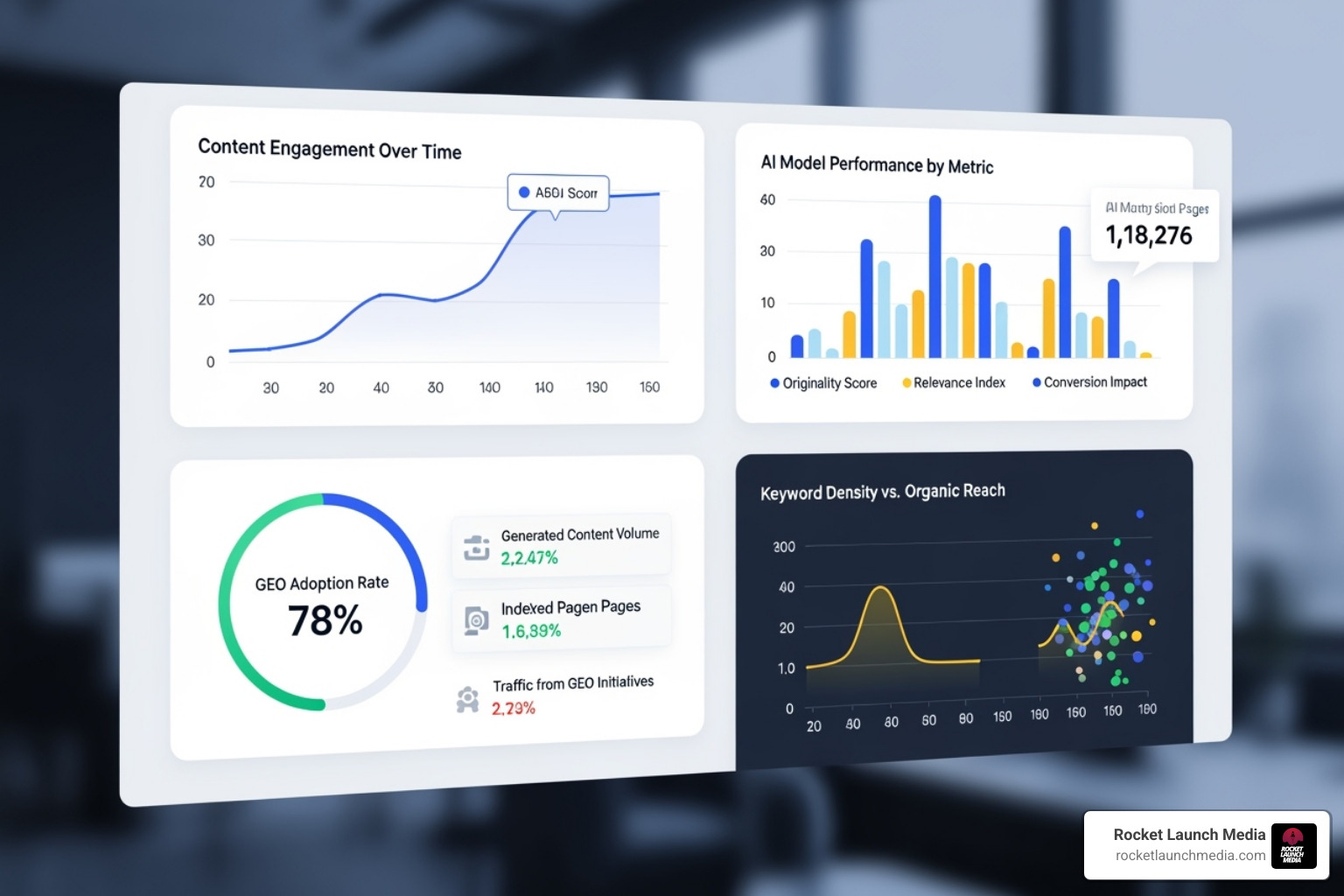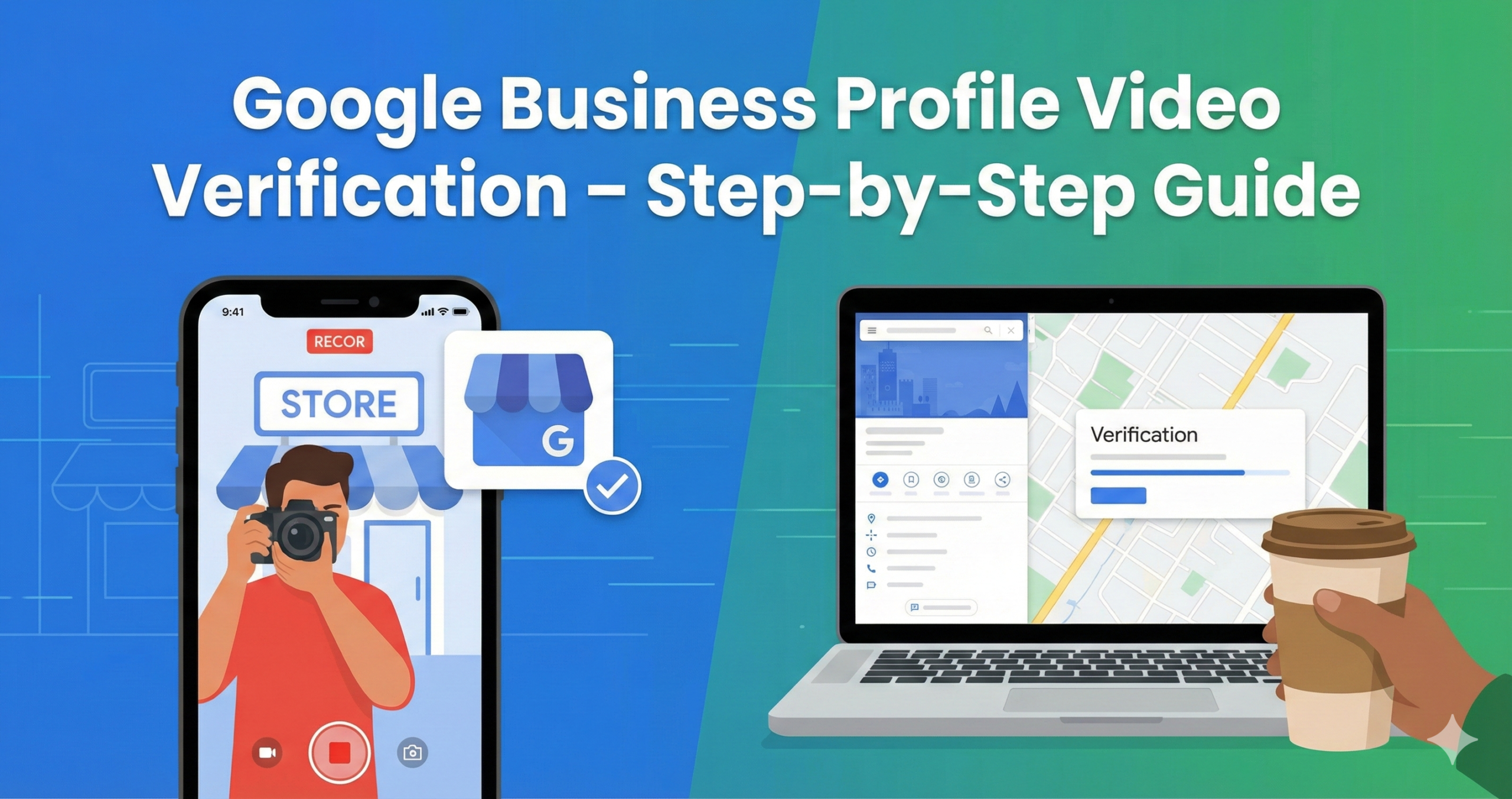The New Era of Search: Understanding Generative Engine Optimization
Generative engine optimization geo seo is the practice of optimizing content to appear in AI-generated answers from platforms like ChatGPT, Google AI Overviews, and Perplexity, rather than just ranking in traditional search results.
Here’s what you need to know:
- What it is: GEO focuses on getting your content cited and referenced in AI-generated responses
- How it differs from SEO: Instead of ranking for keywords, you optimize for AI models to understand and use your content
- Key strategies: Use structured content, citations, statistics, and conversational language
- Success metric: Reference rates (how often AI cites your content) instead of click-through rates
- Impact: Research shows GEO can boost visibility by up to 40% in AI responses
The digital marketing landscape is shifting fast. Traditional search engines are adding AI features, and new AI-powered search platforms are gaining millions of users. Perplexity AI already serves over 500 million queries annually, while ChatGPT drives referral traffic to thousands of websites.
For small and medium business owners, this creates both challenges and opportunities. Your potential customers are asking longer, more conversational questions (averaging 23 words instead of 4). They’re spending more time in search sessions (6 minutes on average) and getting direct answers instead of clicking through multiple links.
The problem? If your content isn’t optimized for these AI systems, you risk becoming invisible to your target audience. The good news? The core principles that make content valuable to humans – clarity, expertise, and helpful information – also make it valuable to AI.
Now, let’s dive deeper into what generative engine optimization geo seo truly entails and how we can leverage it for your business.
What is Generative Engine Optimization (GEO)?
Remember when finding information online meant typing a few keywords into Google and clicking through a dozen blue links? Those days are quickly becoming history. Generative engine optimization geo seo represents a fundamental shift in how we think about content visibility in an AI-driven world.
Here’s what’s happening: instead of serving up lists of websites for you to explore, AI-powered platforms like ChatGPT, Google AI Overviews, and Perplexity AI are doing something entirely different. They’re reading your question, understanding what you really want to know, searching through countless sources, and then crafting a personalized, conversational answer just for you. No more hunting through multiple tabs or scanning through irrelevant content.
This is where Large Language Models (LLMs) come into play. These sophisticated AI systems don’t just match keywords like traditional search engines. They actually comprehend the meaning behind your user queries and generate synthesized answers that feel like they’re coming from a knowledgeable friend rather than a computer.
But here’s the challenge for business owners and content creators: if these AI systems can’t find, understand, or trust your content, you essentially become invisible to your potential customers. It doesn’t matter how brilliant your insights are or how perfectly your content answers someone’s question – if the AI doesn’t recognize its value, it won’t get included in those synthesized answers.
That’s where generative engine optimization becomes crucial. Unlike traditional SEO, which focuses on climbing the rankings ladder, GEO is about making your content visibility shine in AI-generated responses. It’s about structuring your content so clearly and authoritatively that AI systems naturally want to reference and cite it when answering related questions.
Think of it this way: traditional search engines were librarians who handed you a list of books to check out. AI-driven search platforms are more like research assistants who read all those books for you and give you a thoughtful summary, complete with citations to the most helpful sources. Your goal isn’t just to be in the library anymore – it’s to be the source that research assistant trusts and quotes.
The beauty of this shift is that the same qualities that make content valuable to humans – clarity, expertise, and genuine helpfulness – are exactly what these AI systems are looking for too. When you optimize for generative engines, you’re really just becoming better at serving your audience in this new, more conversational digital landscape.
Core Principles and Strategies for Generative Engine Optimization (GEO SEO)
The digital marketing world is experiencing a seismic shift. At Rocket Launch Media, we’ve helped businesses from Columbus to Las Vegas master traditional SEO and PPC campaigns. Now, we’re navigating this exciting new frontier of generative engine optimization geo seo alongside our clients.
Think of it this way: for years, we’ve been teaching websites to speak Google’s language. Now we need to teach them to speak AI’s language too. The good news? Many of the fundamentals remain the same – creating valuable, trustworthy content that genuinely helps people.
What’s changed is how we structure and present that content. AI systems are incredibly sophisticated readers, but they have preferences. They favor clear organization, authoritative sources, and factual accuracy over keyword density and backlink schemes.
Our approach focuses on making your brand narrative not just visible to human customers, but also understood and respected by AI models. This means optimizing for reference rates rather than just click-through rates, and ensuring your expertise shines through in every piece of content.
How GEO Differs from Traditional SEO
For decades, SEO was our North Star. We built entire strategies around climbing Google’s rankings, earning backlinks, and optimizing for specific keywords. It worked beautifully – and still does for traditional search.
But generative engine optimization geo seo plays by different rules entirely.
| Feature | Traditional SEO | Generative Engine Optimization (GEO) |
|---|---|---|
| Primary Goal | High page ranking on SERPs | Inclusion/citation in AI-generated answers |
| Primary Method | Keywords, backlinks, technical SEO | Content structure, clarity, factual accuracy |
| Monetization | Ad-driven (e.g., Google Ads) | Subscription/Value-add (e.g., ChatGPT Plus) |
| User Interaction | Click links to find answers | Receive direct answers from AI |
| Query Length | Shorter (avg. 4 words) | Longer (avg. 23 words) |
| Session Depth | Shorter | Deeper (avg. 6 minutes) |
The biggest difference? Traditional SEO aims to get you clicked on. GEO aims to get you cited as the expert source.
When someone searches “best CRM for small business” in Google, we want them to click through to your website. When they ask ChatGPT or Perplexity the same question, we want the AI to reference your expertise directly in its answer – with a citation back to you as the trusted source.
This shift reflects how people are searching differently too. Queries are longer – averaging 23 words instead of 4. People are asking complete questions like “What CRM features do small manufacturing companies need most?” instead of just typing “CRM software.”
The business models behind these platforms also shape how they work. Traditional search engines make money when you click ads, so they need to send you elsewhere. Many AI platforms run on subscriptions, which means they can provide complete answers without needing you to leave. This makes getting cited even more valuable – it’s often the only way to get visibility.
Optimizing Content Structure and Format for AI Engines
AI models are like incredibly smart librarians – they love well-organized information they can quickly understand and reference. After analyzing millions of AI citations, researchers have identified the content formats that AI systems prefer most.
Listicles are absolute gold. In fact, 32.5% of all sources cited by AI models were comparative listicles. There’s something about the clear, scannable format that AI systems find irresistible. When we create content like “7 Ways Small Businesses Can Improve Local SEO,” we’re speaking AI’s preferred language.
Clear headings and subheadings act like a roadmap for AI systems. They help the AI understand how your content is organized and what each section covers. We always use proper H2 and H3 tags to create a logical hierarchy.
Short paragraphs make content digestible for both AI and humans. Dense blocks of text are harder for AI models to parse and summarize effectively. We aim for paragraphs that make one clear point each.
Conversational language is crucial because AI systems use natural language processing to understand content. Writing like you’re explaining something to a friend helps AI better grasp and reproduce your ideas.
The original GEO research paper revealed something fascinating: simple tactics like keyword stuffing completely failed with AI systems. However, adding statistics and expert quotations boosted content visibility by over 40%. This is why we emphasize backing up every claim with data and including quotes from industry experts.
Schema markup provides structured data that gives AI systems clear context about your content. Google already uses schema for rich results, and it’s likely that AI overviews use it too. We implement schema for FAQs, products, reviews, and other relevant content types.
Interestingly, Reddit emerged as the most-cited source across millions of AI responses. This highlights how much AI values authentic, user-generated discussions over purely promotional content.
The Role of E-E-A-T, Keywords, and Citations in GEO
E-E-A-T – Experience, Expertise, Authoritativeness, and Trustworthiness – has become absolutely critical for generative engine optimization geo seo. While it was important for traditional SEO, it’s make-or-break for GEO because AI systems are incredibly cautious about citing unreliable sources.
Experience means demonstrating real-world knowledge. When we write about local SEO strategies, we share specific examples from our work with clients in Charlotte, Youngstown, and other markets. AI systems can detect generic advice versus insights from actual experience.
Expertise requires having genuine knowledge in your field. For our clients, this might mean having certified professionals create content, or having industry veterans review everything before publication.
Authoritativeness comes from being recognized as a leading voice. This builds over time through consistent, high-quality content and mentions from reputable sources in your industry.
Trustworthiness means providing accurate, verifiable information with transparent source citations. AI systems heavily favor content that backs up claims with credible references.
Keywords still matter, but their role has evolved dramatically. Instead of optimizing for short phrases, we focus on long-tail keywords and topic clusters that address complete user questions. People are asking AI systems full questions like “What are the most cost-effective Facebook ad strategies for local service businesses?”
Natural language processing is how AI understands content, so writing conversationally – the way people actually speak and ask questions – helps AI systems better interpret and use your content.
Reference rates have become the new gold standard metric. This measures how often your content gets cited as a source in AI-generated answers. It’s not just about traffic anymore – it’s about being the trusted expert that AI turns to.
The most effective E-E-A-T signals for GEO include having industry experts write or review content, citing authoritative sources throughout your articles, incorporating expert quotes from recognized voices, answering real user questions comprehensively, and keeping content updated with the latest information and data.
Tools and Platforms to Help with Your Generative Engine Optimization GEO SEO Strategy
The GEO landscape is evolving rapidly, and new tools are emerging to help us track and optimize our performance in AI-generated responses. At Rocket Launch Media, we’re constantly evaluating these platforms to find the ones that deliver real insights for our clients.
Brand monitoring has taken on new importance. We need to track not just where our clients are mentioned online, but how AI systems are representing their brands in generated responses. Platforms like Profound, Goodie, and Daydream are pioneering this space by running thousands of AI queries to see which brands get cited most often.
Sentiment analysis helps us understand the context of those mentions. Is the AI presenting your brand positively when it comes up in responses? Are there any misconceptions or negative associations we need to address?
Reference rate tracking measures how frequently your content gets used as a source. This is becoming as important as traditional ranking metrics because it shows whether AI systems view your content as trustworthy and authoritative.
Established SEO tools are adapting too. Ahrefs’ Brand Radar now tracks brand mentions in Google’s AI Overviews, while Semrush offers dedicated AI toolkits for tracking brand perception across generative platforms.
HubSpot’s AI Search Grader provides a free benchmark of your current visibility in generative search engines. It shows your brand’s AI presence, identifies strengths and weaknesses, and measures your share of voice compared to competitors.
For hands-on testing, Perplexity AI does an excellent job of providing citations. You can use it to test whether your content gets picked up by searching for topics where your content should be authoritative. If Perplexity cites your content, there’s a good chance other AI systems will too.
These tools are becoming as essential as Google Analytics and Search Console were for traditional SEO. They help us understand not just how visible our clients are in AI responses, but how they’re being portrayed and whether that aligns with their brand goals.
The Future of Search and Measuring GEO Success
The world of digital marketing is changing fast, and generative engine optimization geo seo sits right at the center of this change. We’re witnessing something remarkable: search is becoming less about finding websites and more about getting direct answers from AI.
So how do we measure success in this new landscape? It’s not as straightforward as tracking keyword rankings anymore. Reference rates have become the gold standard – essentially, how often AI models cite your content when answering questions. This is your new “position one” in the AI world.
Brand perception tracking is equally crucial. Tools are emerging that analyze not just whether you’re mentioned, but how you’re portrayed. Are you being described accurately? Positively? The sentiment and context matter enormously because AI responses shape how thousands of potential customers perceive your brand.
Interestingly, early data suggests that conversions from AI-driven traffic can be higher than traditional search. Nate Tower noted that conversions from LLMs are higher by percentage, likely because users asking detailed questions to AI already have stronger intent.
We’re also seeing direct AI-driven referral traffic grow. While AI might summarize your content, compelling information still drives clicks when users want to dive deeper or make a purchase. Your share of voice in AI responses – how much of the AI’s industry-related answers come from your content – becomes a critical metric.
The implications for the future of digital marketing are massive. We’re moving toward AI search fragmentation where different platforms serve different needs. Instagram for visual findy, Amazon for products, Siri for quick answers, and specialized AI chatbots for detailed conversations.
Voice search integration is accelerating this change. More users are speaking to AI rather than typing, which means your content needs to sound natural when read aloud. Multimedia content like videos and infographics are becoming more valuable as AI systems learn to interpret visual information.
At Rocket Launch Media, we’re already integrating these shifts into our strategies. We help our clients from Columbus to Charlotte prepare for a world where their content needs to work for both humans and AI systems. Our content marketing services now focus on creating material that gets cited, not just clicked.
Emerging Trends and Best Practices for Generative Engine Optimization GEO SEO
The generative engine optimization geo seo landscape is evolving rapidly, and smart businesses are already adapting to these changes. Let’s explore what’s working now and what’s coming next.
Fragmented AI search is reshaping how we think about optimization. There’s no single “Google” of AI anymore. Platform-specific optimization means understanding that Instagram’s AI serves visual seekers, Amazon’s helps shoppers, and ChatGPT assists researchers. Each requires custom approaches.
User context memory is game-changing. AI systems remember entire conversations, building on previous interactions. This rewards brands that provide consistently helpful, accurate information across all touchpoints. Your content becomes part of an ongoing relationship rather than isolated answers.
Voice search integration is accelerating faster than many predicted. When someone asks Siri a question while driving, they need concise, conversational answers. Your content should sound natural when spoken aloud – think about how an expert would explain your topic to a friend over coffee.
Multimedia content is gaining serious traction. AI can now interpret infographics, extract data from charts, and summarize video content. Chris Long from Go Fish Digital found that highly structured visual content gets pulled into AI responses more frequently. This makes sense – AI systems appreciate clear, organized information just like humans do.
Proactive content creation separates winners from followers. Instead of waiting to see what questions people ask, successful brands anticipate needs. They create comparative listicles, detailed guides, and FAQ-style content designed specifically for AI consumption.
Continuous monitoring isn’t optional anymore. The AI landscape shifts weekly, not yearly. Brands need real-time insights into how AI systems reference their content. Tools like HubSpot’s AI Search Grader and emerging platforms help track this, but the key is consistent attention.
Brand-driven strategies focus on narrative control. How do you ensure AI describes your company accurately? By consistently producing expert-level content that aligns with your brand values. When AI encounters multiple high-quality sources from your brand, it builds a comprehensive, positive picture.
The significance of reference rates cannot be overstated. Research shows that adding citations, quotations, and statistics can boost visibility in AI responses by over 40%. This isn’t about keyword stuffing – it’s about becoming the authoritative source AI systems trust.
Some traditional marketers see this as threatening, but we view it as opportunity. Yes, click-through rates might decline for basic informational queries. But brands that master generative engine optimization geo seo become the trusted sources AI relies on. They get cited, referenced, and recommended.
At Rocket Launch Media, we’re helping businesses from Parma to New York steer this transition. We integrate GEO principles into every content strategy, ensuring our clients remain visible whether customers search traditionally or through AI. Our approach combines proven SEO fundamentals with cutting-edge AI optimization techniques.
The future belongs to brands that understand this shift. Your website needs to be more than a 24/7 sales tool – it needs to be an AI-friendly knowledge source that builds authority across every platform where your customers might search.


